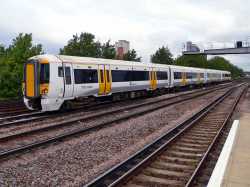>>1717677this is less due to the magic of privatization and more because privatization moved the whole thing off balance sheet, allowing the government to trick itself into giving the railways the money they needed.
because the government owned BR they could see how much money they had to spend on it, so they always demanded cuts and pushed for every possible saving. once the railways were privatized they tried to pull down the amount of subsidy on offer, but after railtrack failed at the very basic task of a track operator - not leaving the track in such disrepair that people die - and was renationalised at network rail subsidies have been climbing again. mostly because private operators have a stronger bargaining position than BR did: if BR isn't getting enough subsidy to run a route, it has to close the route or cut things to the bone, if a private company isn't getting enough subsidy it can refuse to bid for the franchise until the government makes a better offer.
it's a question of political economy rather than of private vs public ownership. if BR was renationalised and they were smart about it, they'd make it a state owned enterprise (i.e. company where the government has 100% of the shares run as a business outside political control) rather than the old style of nationalised industry where politicians could go around trying to pinch every penny.
(the UK's public accounting standards are wild. a lot of stupid schemes only make sense when you realise it's a way for the government to take on debt to pay for necessary things without it showing up on the public sector borrowing requirement. this wouldn't fly in a lot of other countries.)

